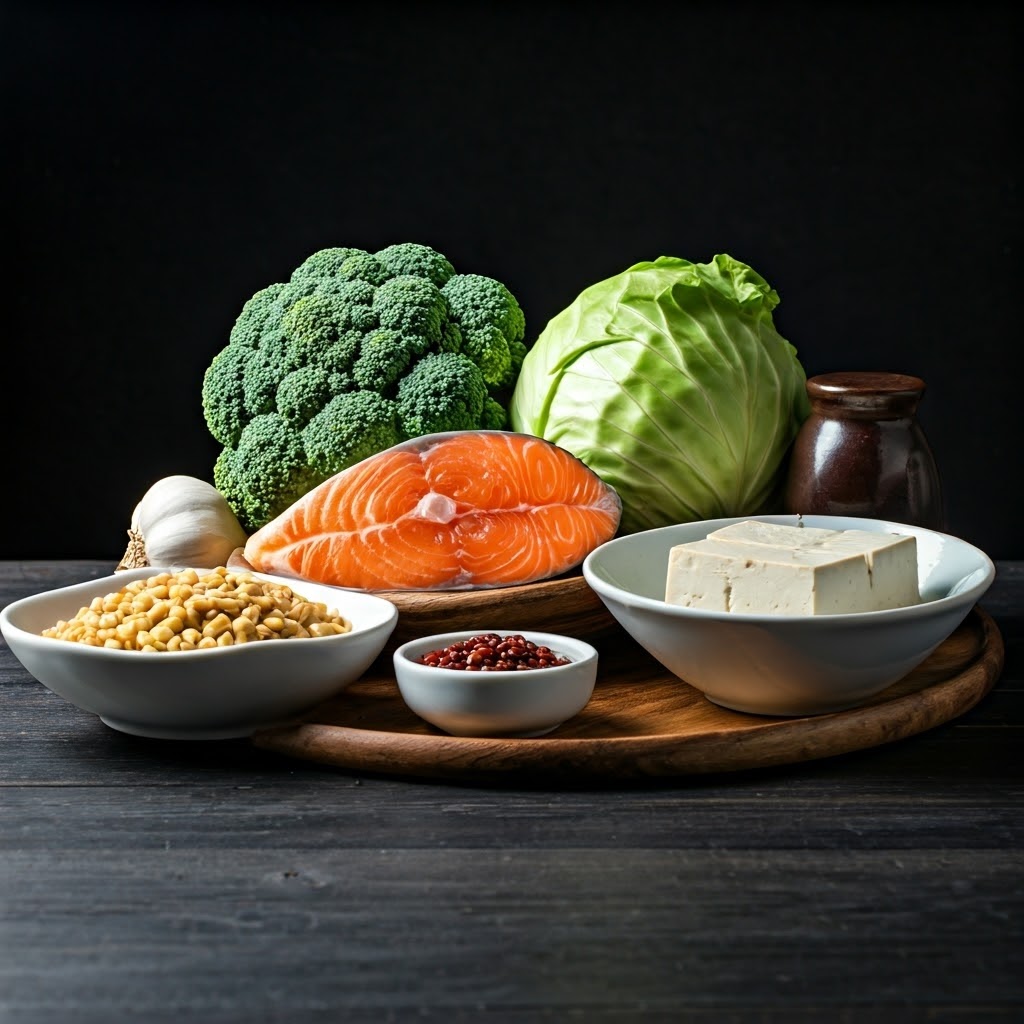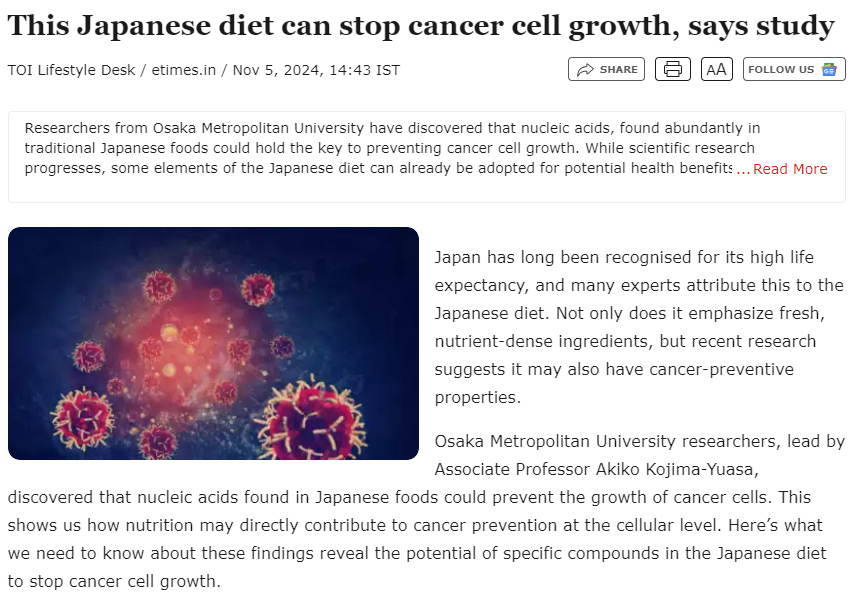The Japanese Diet & Cancer Prevention

The Japanese diet has long been associated with good health, and recent research is shedding light on its potential role in cancer prevention. Studies have shown that the high intake of cruciferous vegetables, like broccoli, cabbage, and kale, found in a typical Japanese diet may be a contributing factor to lower cancer rates in Japan. These vegetables are rich in phytonutrients, which have been linked to anti-cancer properties.
Furthermore, the Japanese diet emphasizes whole grains, fish, and soy products, all of which are known to be beneficial for overall health. Fish, particularly fatty fish like salmon and tuna, are rich in omega-3 fatty acids, which have been shown to have anti-inflammatory effects and may help protect against certain types of cancer. Soy products, like tofu and tempeh, are a good source of plant-based protein and phytoestrogens, which may also play a role in cancer prevention.
However, it’s important to note that correlation does not equal causation. While the Japanese diet may be associated with lower cancer rates, it’s not the only factor at play. Lifestyle factors, such as physical activity, smoking habits, and alcohol consumption, also play a significant role in cancer risk.
Further research is needed to fully understand the complex relationship between diet and cancer. However, the evidence suggests that adopting some elements of the Japanese diet, such as increasing your intake of fruits, vegetables, and whole grains, may contribute to a healthier lifestyle and potentially reduce your risk of cancer.
Reference:
This article is based on information from “This Japanese diet can stop cancer cell growth, says study” originally published on the Times of India website.



You Might Also Like
Why Traditional Recipes Are Still the Best.
Traditional foods are more than just delicious—they're packed with health benefits, family...
Culinary Adventures: Exploring Taste & Tradition
Food has a unique ability to transcend boundaries, evoke memories, and bring...
Embracing Wellness with Yoga and Good Food
In today's fast-paced world, maintaining balance in both mind and body is...
Exploring Goan Food Culture and Traditional Recipes – A Flavorful Coastal Journey.
Discover the vibrant world of Goan cuisine—where Portuguese influences meet coastal Indian...
A Bond Beyond Borders: Honouring Breastfeeding and Motherhood Around the World.
August is National Breastfeeding Month, celebrating the special bond between mothers and...
Moringa Ela & Moringa (Drumstick): A Nutrient-Packed Superfood in Kerala Cuisine.🌿
Dive into the wholesome flavors of Kerala with this traditional recipe made...